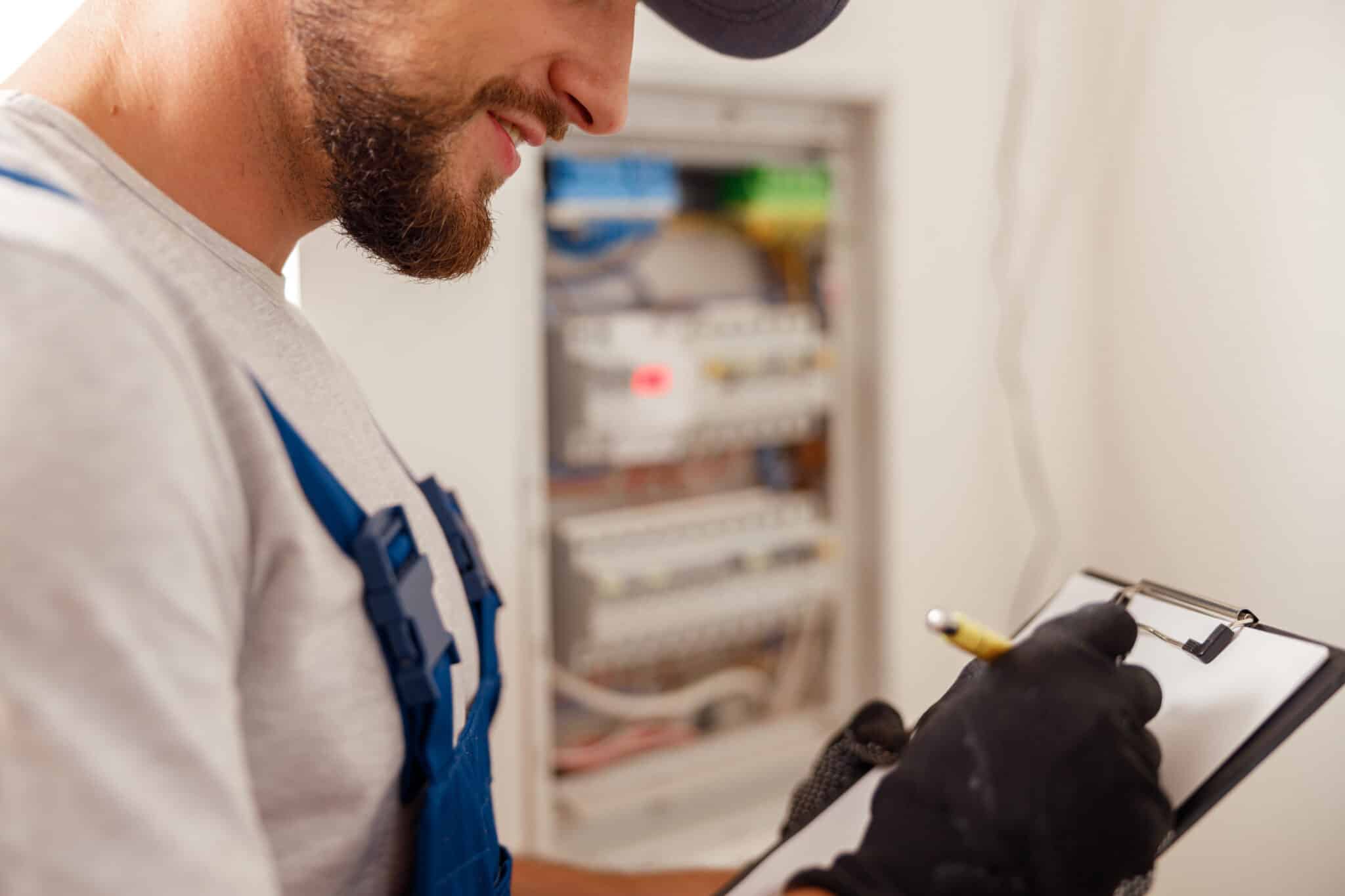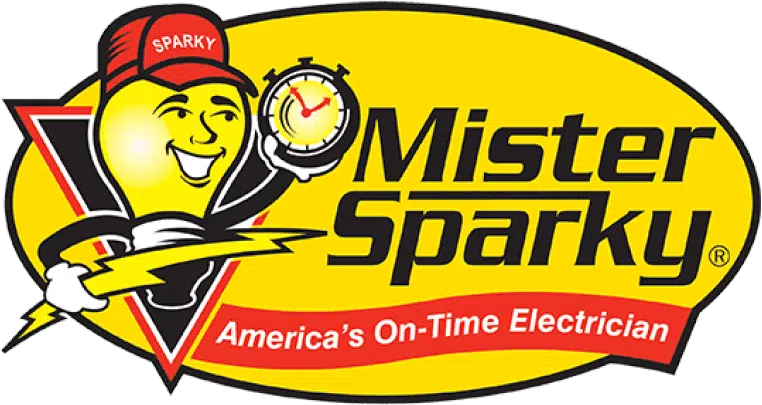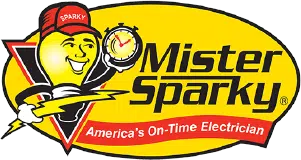Dealing with electrical overload in your home can seem daunting, yet it’s a common issue faced by many households in Lancaster, PA. This problem arises when too many electrical devices are used simultaneously, straining your home’s electrical system beyond its capacity. Understanding the causes and implementing practical solutions is crucial for maintaining your home’s safety and efficiency. By addressing electrical overload promptly, you can prevent potential hazards and ensure your electrical system functions optimally.
Electrical overload is not just a minor inconvenience, it poses serious risks, including the possibility of fires and damage to appliances. Residents in Harrisburg, PA, and surrounding areas have experienced the repercussions of overlooking this critical issue. It’s essential to recognize the signs of electrical overload early, such as flickering lights or frequently tripped circuit breakers, to take immediate action. Awareness and timely intervention can dramatically reduce the risks associated with electrical overload.
Fortunately, preventing electrical overload is achievable with the right knowledge and strategies. It starts with understanding your home’s electrical capacity and the power requirements of your appliances. Simple measures, such as staggering the use of high-power devices and unplugging appliances when not in use, can make a significant difference. These steps not only safeguard your home but also contribute to more efficient energy use, reflecting positively on your utility bills.
In Lancaster, PA, and beyond, addressing electrical overload is a shared responsibility among homeowners. By staying informed and proactive, you can protect your home from the dangers of electrical overload. This article aims to equip you with the necessary information and solutions to tackle this issue head-on, ensuring your home remains a safe and efficient space for you and your family.
Understanding Electrical Overload and Its Causes
Understanding electrical overload begins with recognizing its causes, which are often rooted in the everyday use of household appliances. In Lancaster, PA, homes filled with modern conveniences can easily exceed electrical systems’ limits without homeowners realizing it. Overloading occurs when multiple high-demand devices operate simultaneously, drawing more power than the system can supply. This imbalance can lead to overheated wires and potential hazards, emphasizing the need for awareness and caution.
Another common cause of electrical overload is the reliance on extension cords and power strips that allow for the connection of additional devices beyond what a single outlet can handle. While convenient, this practice can inadvertently contribute to overload by centralizing too much demand in one location. It’s crucial to understand that these solutions are meant for temporary use and not as permanent fixtures in a home’s electrical setup. Properly distributing electrical consumption can significantly mitigate the risk of overload.
Inadequate electrical infrastructure also plays a significant role in electrical overload, especially in older homes in Harrisburg, PA. These properties were built with electrical systems designed for a time when households had far fewer electrical demands. Without updates to accommodate modern appliances and technology, these systems are prone to overload. Homeowners should consider professional assessments to ensure their electrical infrastructure can safely meet current needs.
Lastly, a lack of regular maintenance can lead to unnoticed issues within an electrical system, increasing the likelihood of overload. Routine checks can identify potential problems, such as outdated wiring or faulty circuit breakers, before they lead to more significant issues. By staying proactive and addressing these concerns early, homeowners can prevent electrical overload, ensuring their home remains safe and their electrical system operates efficiently.
Signs You’re Experiencing an Electrical Overload
Recognizing the signs of electrical overload in your home is crucial for maintaining safety and efficiency. One common indicator is flickering or dimming lights, which often occurs when the electrical system is under too much strain. Another telltale sign is circuit breakers that frequently trip, cutting off power unexpectedly. These occurrences suggest that the electrical demand exceeds what your system can safely handle, signaling a need for immediate attention.
In Lancaster, PA, homeowners might also notice that their appliances are not operating at full capacity or are overheating without a clear reason. This can happen when the electrical system is overloaded and unable to supply enough power to each device. Overheating appliances not only perform poorly but also pose a significant risk of causing fires or sustaining damage themselves. It’s important to be aware of these signs and take them seriously to prevent potential hazards.
Another less obvious sign of electrical overload is the use of multiple extension cords and power strips in your home. While it might seem like a convenient solution, it’s often a clear indicator that your electrical system is being pushed beyond its limits. In Harrisburg, PA, relying too heavily on these temporary fixes can mask underlying issues with your electrical setup, leading to more serious problems over time.
Lastly, a buzzing sound from outlets or switches is a less common but serious sign of electrical overload. This noise can indicate that the electrical current is too high, causing a dangerous situation that could lead to electrical fires. If you encounter any of these signs, it’s vital to act quickly by consulting a professional electrician to assess and resolve the issue, ensuring your home remains safe and your electrical system functions efficiently.
The Impact of Electrical Overload on Home Safety
Electrical overload not only disrupts the daily use of your appliances but also poses a significant risk to your home’s safety. In Lancaster, PA, the consequences of ignoring these risks can be severe, including the potential for electrical fires. Such fires can start when overloaded circuits heat up to the point where they ignite nearby flammable materials. Therefore, understanding and preventing electrical overload is not just about convenience but ensuring the safety of your home and loved ones.
In Harrisburg, PA, the integrity of electrical systems in older homes is particularly at risk due to electrical overload. These structures, often equipped with outdated wiring, are ill-prepared to handle the energy demands of modern appliances and electronics. When the system is pushed beyond its limits, it may lead to damage that is not only costly to repair but also dangerous. Regular updates and maintenance are crucial in preventing such scenarios, safeguarding your home against the risks associated with electrical overload.
The impact of electrical overload extends beyond the immediate threat to your home’s safety, it can also have long-term effects on your electrical system’s efficiency. Over time, consistent overload can degrade the system’s components, leading to frequent breakdowns and the need for replacements. This not only increases maintenance costs but also decreases the overall efficiency of your electrical system, making it more prone to issues in the future.
Taking proactive steps to manage and prevent electrical overload is essential for maintaining a safe and efficient home. Simple actions like monitoring your electrical usage, avoiding the excessive use of power strips, and consulting with professional electricians for regular check-ups can make a significant difference. By staying informed and vigilant, homeowners in Lancaster, PA, and beyond can protect their homes from the dangers of electrical overload, ensuring a safe and comfortable environment for everyone.

Preventing Electrical Overload: Practical Tips
To effectively prevent electrical overload, it’s essential to understand the capacity of your home’s electrical system. Knowing the limits can guide you in managing the usage of appliances and devices, especially during peak times. In Lancaster, PA, homeowners can benefit from consulting with a professional electrician to evaluate their system’s capacity. This step ensures that you’re well-informed about how much your home can handle before it becomes overloaded.
Another practical tip is to distribute electrical consumption evenly throughout the house. Instead of plugging multiple high-demand devices into a single outlet or power strip, spread them out across different circuits. This approach helps in reducing the risk of overload and protects your appliances from potential damage. In Harrisburg, PA, this strategy can be particularly useful in older homes with outdated electrical systems.
Regularly inspecting and maintaining your electrical system is also crucial in preventing electrical overload. Ensure that all wiring, outlets, and circuit breakers are in good condition and up to current standards. Any signs of wear or damage should be addressed immediately by a professional to prevent further issues. This proactive measure not only enhances safety but also improves the efficiency of your electrical system.
Lastly, consider upgrading your electrical panel if necessary, especially if you’re adding new appliances or making significant changes to your home. An upgraded panel can better accommodate increased electrical demands, significantly reducing the risk of overload. By taking these steps, homeowners can ensure their electrical system is safe, efficient, and capable of meeting their daily needs without the dangers associated with electrical overload.
The Role of Circuit Breakers in Managing Overload
Circuit breakers play a crucial role in preventing electrical overload by automatically shutting off the power when the system is overloaded. This safety mechanism helps protect your home in Lancaster, PA, from potential electrical fires and appliance damage. By monitoring the flow of electricity, circuit breakers ensure that the electrical demand does not exceed what the system can handle. Their ability to detect and respond to overload conditions makes them an essential component of any electrical system.
Regular testing of circuit breakers is vital to ensure they function correctly. Homeowners should make it a habit to check these devices periodically to confirm they are in good working order. If a breaker frequently trips, it could indicate an underlying issue with electrical overload that needs attention. Addressing these signs early can prevent more serious problems in your home’s electrical system.
Upgrading outdated circuit breakers is another effective way to manage electrical overload. Modern circuit breakers offer enhanced features and better protection against overload conditions. For homes in Harrisburg, PA, with older electrical systems, this upgrade can significantly improve safety and efficiency. It ensures that your electrical system can accommodate current usage patterns without the risk of overload.
Educating yourself about your home’s electrical system and the role of circuit breakers in managing overload is beneficial. Understanding how to respond when a breaker trips and knowing when to call a professional are key to maintaining a safe electrical system. By taking proactive steps to manage electrical overload, homeowners can ensure their systems are both safe and reliable.

How to Safely Reset Your System After an Overload
After experiencing an electrical overload, resetting your system safely is paramount to prevent any further issues. First, disconnect all appliances that were in use when the overload occurred. This step helps to mitigate any immediate risk of overloading the system again when power is restored. It’s a simple yet effective way to start addressing the problem without putting your Lancaster, PA home at further risk.
Next, locate your main circuit breaker and carefully switch it off, then back on. This action resets your electrical system, clearing any faults caused by the overload. It’s crucial to perform this step with caution, ensuring that your hands are dry and you’re standing on a dry surface to avoid any electrical hazards. This process is a fundamental skill for homeowners in Harrisburg, PA, to master, ensuring they can safely respond to electrical issues.
Once the system is reset, reconnect your appliances one at a time, starting with those most essential to your daily routine. This gradual approach allows you to monitor the system’s response as you increase the load, helping to identify any potential issues before they lead to another overload. It also helps in pinpointing if a specific appliance may be contributing to the problem, a useful insight for further troubleshooting.
Finally, if the circuit breaker trips again after resetting or if you notice any signs of damage, it’s imperative to call a professional electrician. Attempting to fix complex electrical problems on your own can be dangerous and may exacerbate the issue. A qualified electrician can safely identify and repair any damage, ensuring your electrical system is both safe and capable of handling your home’s needs, keeping electrical overload at bay.
Electrical Overload and Energy Efficiency
Addressing electrical overload not only safeguards your home from potential hazards but also enhances its energy efficiency. By managing the electrical demand within your home’s capacity, you reduce the strain on your electrical system. This efficiency minimizes the energy wasted through heat and resistance, commonly seen in overloaded circuits. In Lancaster, PA, homeowners can see a noticeable improvement in their energy consumption by adhering to these practices, reflecting positively on their utility bills.
Implementing energy-efficient appliances plays a significant role in combating electrical overload. These appliances require less power to operate, significantly reducing the risk of overloading your home’s electrical system. Furthermore, in Harrisburg, PA, making the switch to energy-efficient options can lead to long-term savings, as these appliances are designed to use electricity more effectively, thus lowering overall energy costs.
Another strategy involves the strategic use of lighting to prevent electrical overload while enhancing energy efficiency. Opting for LED bulbs, which consume a fraction of the power that incandescent bulbs do, can make a significant difference. Not only do they help in reducing the electrical load, but they also last longer, offering homeowners in Lancaster, PA, an effective way to cut down on both energy use and replacement costs.
Lastly, regular maintenance of your electrical system ensures it operates efficiently, further preventing electrical overload. A well-maintained system distributes power effectively, without unnecessary waste or strain. For residents in Harrisburg, PA, scheduling annual check-ups with a professional electrician can identify and rectify any inefficiencies, ensuring your home’s electrical system remains safe, reliable, and efficient.
Professional Solutions for Electrical Overload Issues
When faced with electrical overload issues in your home, seeking professional assistance is a wise decision. A licensed electrician has the expertise to thoroughly assess your electrical system, identifying any underlying problems contributing to overload. In Lancaster, PA, professionals can offer tailored solutions, ensuring your home’s electrical infrastructure meets your current and future needs. Their knowledge extends beyond simple fixes, providing a comprehensive approach to prevent electrical overload.
Upgrading your home’s electrical panel is often a recommended solution for handling electrical overload efficiently. Electricians in Harrisburg, PA, can determine if your current setup is adequate or if a more modern panel is necessary. This upgrade not only enhances your system’s capacity but also incorporates advanced safety features. As a result, your home is better equipped to handle high-demand appliances without the risk of overload.
Another professional solution involves the installation of dedicated circuits for heavy-duty appliances. This strategy ensures that major appliances such as refrigerators and washing machines have their own power sources, reducing the burden on your home’s overall electrical system. By implementing this solution, homeowners can significantly mitigate the risk of electrical overload, promoting safer and more efficient operation of their appliances.
Finally, regular professional inspections are crucial for maintaining an electrical system’s integrity and preventing overload. These inspections can catch potential issues before they escalate, saving homeowners from costly and dangerous consequences. Whether you’re in Lancaster, PA, or Harrisburg, PA, scheduling annual check-ups with a trusted electrician is an essential step in safeguarding your home against electrical overload. Through these professional solutions, you can ensure your electrical system is robust, reliable, and ready to meet your household’s demands.
Frequently Asked Questions
What causes electrical overload?
Electrical overload happens when too many devices draw power from the same circuit. This can occur if you plug in more appliances than the circuit can handle. Faulty wiring and outdated electrical systems also contribute to this issue. To prevent overload, it’s essential to understand your home’s electrical capacity.
How can I prevent electrical overload?
To prevent electrical overload, start by understanding your home’s electrical system capacity. Avoid plugging too many devices into one outlet or power strip. Regularly inspect your appliances and cords for damage, as these can cause overloads. Lastly, consider upgrading your electrical panel if it’s old or you frequently experience issues, ensuring your system can handle modern electrical demands safely.
What are the signs of electrical overload?
Signs of electrical overload include flickering or dimming lights when you use multiple appliances. You might also notice outlets that feel warm to the touch or emit a burning smell. Frequent breaker trips are a clear indicator that your circuit is overloaded. Lastly, buzzing sounds from outlets or switches signal that your home’s electrical system is under stress.
How does electrical overload affect appliances?
Electrical overload can seriously harm your appliances. It may cause them to overheat, reducing their lifespan significantly. Frequent overloads can also lead to permanent damage, making appliances unusable. To protect your devices, it’s crucial to manage your home’s electrical demand carefully.
Can electrical overload cause a fire?
Yes, electrical overload can indeed lead to a fire in your home. When too much current flows through wires, they can overheat and ignite surrounding materials. This risk highlights the importance of managing your electrical system’s load. By taking steps to prevent overload, you safeguard your home against potential fire hazards.






